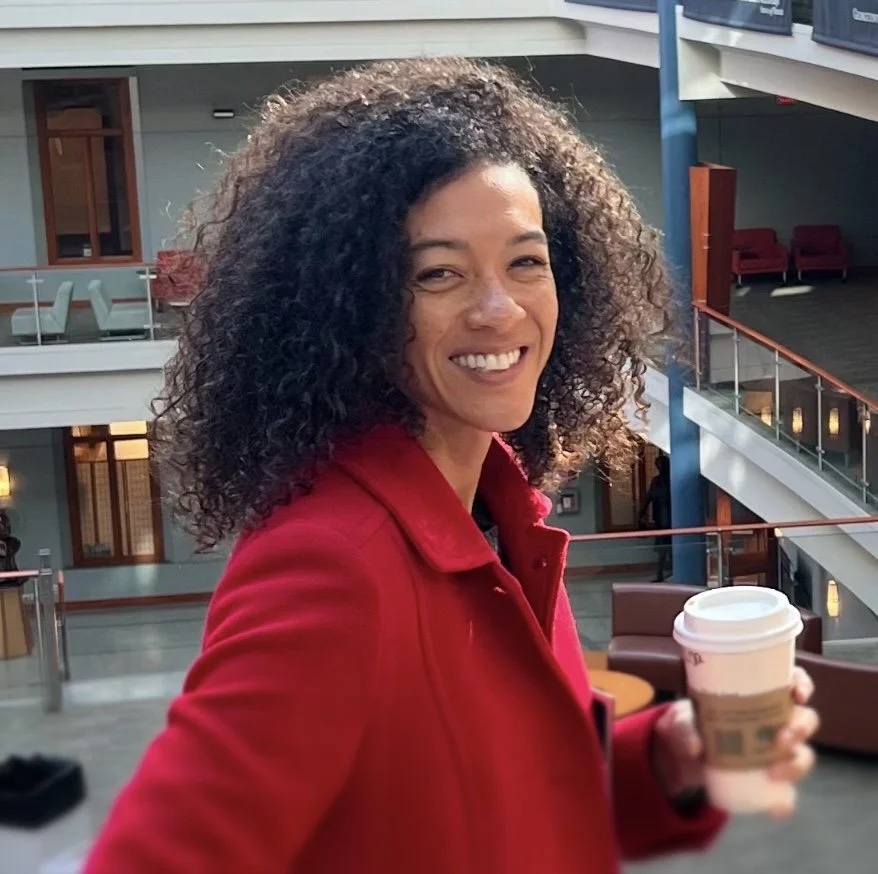Black-owned restaurants share impacts of Covid and racial justice advocacy on business
/Booker Parchment, owner of Mr. Braxton in Park View
by Austin Schott
“March 16th. I'll never forget that day.”
Booker Parchment, owner of Mr. Braxton in Park View, recalls the day Mayor Muriel Bowser closed all restaurants’ dine-in service.
“I would say we were probably around eight to 10 percent of our revenue.”
Mr. Braxton, which opened last summer, prides itself on providing a space where folks can sit for hours and enjoy the environment featuring an eclectic food variety and antique decorations. But when Covid struck, business took a hit.
A few months later, videos of police brutality and the murders of George Floyd, Breonna Taylor, and Ahmaud Arbery, among others, brought additional tension to Parchment, who is Black.
“So not only are you trying to manage a business through a global pandemic, but then also you have issues that affect you on a personal level, right? As I'm here trying to focus on the business and then maneuver the restrictions, I'm also thinking about myself as a Black man and then trying to raise three Black men. It’s just — it’s overwhelming,” he said.
Thankfully, when restaurants were allowed to reopen with a limited capacity, folks were eager to return to the rack of lamb, salmon pasta, and eccentric cocktails at Mr. Braxton. Their numbers soon all but returned to pre-pandemic levels.
Parchment’s restaurant isn’t the only Black-owned restaurant to have experienced a particularly memorable six months. Restaurants across the greater Petworth neighborhood have experienced dramatic ups and downs. The confluence of a pandemic, an invigorated population set on addressing systemic racism, and long-felt barriers faced by Black restaurant owners have led to a series of truly unique stories.
Barriers for Black-owned businesses
Anela Malik, activist and author of Feed the Malik blog, posits Black-owned restaurants faced barriers long before the virus was spreading: “We know that Black business owners historically have faced a lack of access to credit and capital. They're opening and running a business with less resources.”
She referenced an article by the Washington Post where Peter Prime, a DC-based award-winning chef, had trouble securing a location because leasing agents assumed he was opening a nightclub. “And so, if Peter Prime had those issues, Mom-and-Pop shops, who don't have that reputation, they definitely have those issues.”
Bill White, owner of Fish in the Hood in Park View
Bill White, owner of Fish in the Hood, has faced his own difficulties preserving his restaurant that he attributes to his race and neighborhood gentrification.
Fish in the Hood is a 22-year-old Park View seafood institution where to-go bags are packed to the brim with large helpings of catfish, mouth-watering mac and cheese, and extra servings of colorful sauces.
But White has faced a handful of financial hurdles incurred by a devastating fire in 2017 and an absent contractor who was mandated to handle repairs. White, whose lease is coming to a close, wonders if he can compete with rising property values.
“I'm not the only one going through this as far as Black businesses. As far as small Black businesses [go], we get squeezed out — the property gets too expensive.”
Covid strikes
The COVID-19 pandemic only amplified these hurdles for many Black-owned restaurants in the neighborhood.
Selam Gossa opened Tsehay Ethiopian Restaurant and Bar in 2019 after having spent a year renovating the space. She considers the restaurant a legacy to her mother who excelled at preparing Ethiopian cuisine from scratch with fresh ingredients. So Gossa and her co-owner Daniel Seifu ensure their ingredients are similarly fresh.
But the inconsistency of food-orders following the Covid outbreak led to unexpected sunk costs.
“When there was a pandemic, it was very hard for us to keep up,” Gossa said, “Because if you’re unable to sell your fresh cooked meals during the day, you have to trash it.”
Selam Gossa, owner of Tsehay Ethiopian Restaurant and Bar
Gossa had hoped that, following the initial renovation costs, she would hope to turn a worthwhile profit in the spring. But the pandemic led to a staggering drop in business. Now she’s wondering if she came keep her doors open.
“We cannot predict what's going to happen next.”
At the same time, Covid brought opportunities for other Black-owned restaurants. On the corner of Crittenden and Georgia, Backyard Smoke Spot BBQ, which holds a convenience store license, was allowed to stay open when other restaurants were forced to close their doors.
“We shut down for a week to make sure everybody was okay. Nobody got sick or anything. And then we opened back up and continue to stay open because we were considered an essential business,” co-owner Bernard Belk said.
Folks were eager to visit the restaurant/convenience store because they were offering a quality of food few other businesses could provide. Their legendary stuffed salmon was reason enough for folks to drive across town for a dining experience reminiscent of the before-times. Belk asked me to relay his thanks to the community for all their support.
Mayor Bowser allowed restaurants to seat patrons again in May if outdoor and socially distanced.
Bernard Belk, co-owner of Backyard Smoke Spot BBQ in Petworth
June surge
Weeks later, in June, Instagram and Facebook feeds began serving as megaphones for social justice advocacy. Fueled in-part by high-profile police killings and calls to address institutionalized racism, activists used social media to provide manuals on how to intervene, answering folks’ desperate cries on how they could do their part to address inequality. Many social media posts advocated for patronage of Black-owned businesses.
Malik told me that following the calls to action in June, “Business owners that I spoke to had a huge surge in business. A few of them even said they surpassed pre-pandemic levels of business.”
Belk said protestors traveling to DC from across the country to attend Black Lives Matter rallies went out of their way to visit Backyard Smoke Spot. “We had some people from California come through!”
White has noticed an increase in tips since advocacy campaigns took off. “[First time visitors] will leave me a five, 10 or 15 dollar tip. I think people are feeling that Black businesses are in danger.”
Many owners in Petworth and Park View have seen sustained sales throughout the summer – though many attribute this as much to the increased reopening as they do to racial justice advocacy. Parchment, for example, cheerfully told me that Mr. Braxton is still on an upward trajectory.
This isn’t true across the board though. Malik has seen patronage of Black-owned restaurants dwindle since its peak in early summer. “People are tired. We have pandemic fatigue,” she said. “I think it still feels like a pivotal kind of moment in the way that we talk about race and racial equality in America. But that level of attention — there's no way that was going to be sustained over months and months and months.”
Gossa says Tsehay, which never saw a strong boost in food orders related to advocacy campaigns, has faced dropping sales since August.
“I'm going to fight to the end of to stay in business, but it’s hard, [and] it's getting harder.”
Looking towards Fall
Every restaurant I talked to had a different story. Fish in the Hood was concerned by neighborhood changes long before Covid arrived. Backyard Smoke Spot evaded closures at the start of the pandemic because of its in-house convenience store. Mr. Braxton took a hit in sales due to Covid but has since largely recovered. Tsehay is still struggling and never saw tangible support from the promotion of Black-owned restaurants.
Reflecting on the decline she’s seen in support to minority-owned restaurants across the city, Malik shares that she hopes restaurant visitors make small, sustainable changes in their consumption patterns. “I've really been a big proponent of this concept of Black-food Fridays. We can encourage people to make a change in their consumption patterns one day a week.”
Parchment provided similar recommendations to folks looking to address systemic racism through their spending. “There are other businesses that are not minority-owned and I want those businesses to survive and thrive as well. I would just say make sure that the minority-owned businesses are a part of your options, because there are certain challenges that are baked-in.”


















